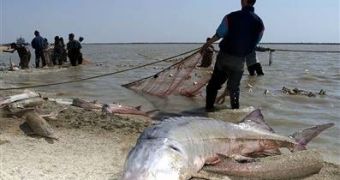Recent studies indicate that up to 25% of the fish currently on the world's markets comes from illegal fishing. Past attempts to deal with this situation ended in failure, as up until now it has been virtually impossible to successfully prove that certain fish come from illegal trades.
However, it seems that scientists have finally come up with a solution: using genetics, they will accurately determine the species and region of origin of fish on the market, thus making it impossible for illegal trades to carry on with their businesses of manufacturing “fashionable” labels for fish they procured in rather “unfashionable” ways.
In the end, they hope to both ensure the conservation of the planet's fish stocks, and to encourage the official fishing industry.
According to Science Daily, Professor Gary Carvahlo, one of the researchers in charge in this project, argues that “a major existing problem is that it has not previously been possible to prove the exact origin of any particular fish, and in some circumstances, particularly with processed or cooked fish, it can be quite difficult even to identify the species, let alone its source of origin.”
In the case of illegal fishing, two very important aspects are not taken into consideration: first of all, marine ecosystems are very delicate mechanisms that can be easily damaged, especially if one fishes more than the natural balance of the area allows for. Secondly, it may be that the fish found in certain parts of the ocean cannot be eaten by people without their risking health problems.
As well as this, should things continue in this manner, illegal fishing would end up costing Europe a staggering €10 billion throughout the course of the next 8-10 years.
Led by Bangor University, UK, the “FishPopTrace” project supposedly requires three years for its completion, and its initial budget amounts to €4 million. Hopefully, when all is said and done, both fish-kind and human kind will benefit from a much more tranquil existence.

 14 DAY TRIAL //
14 DAY TRIAL //